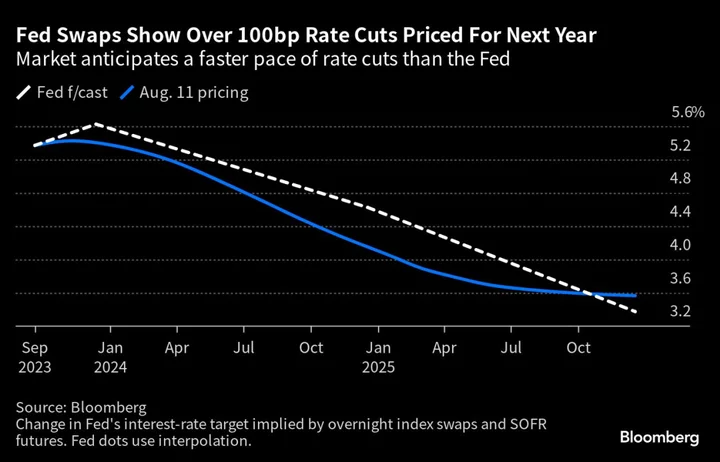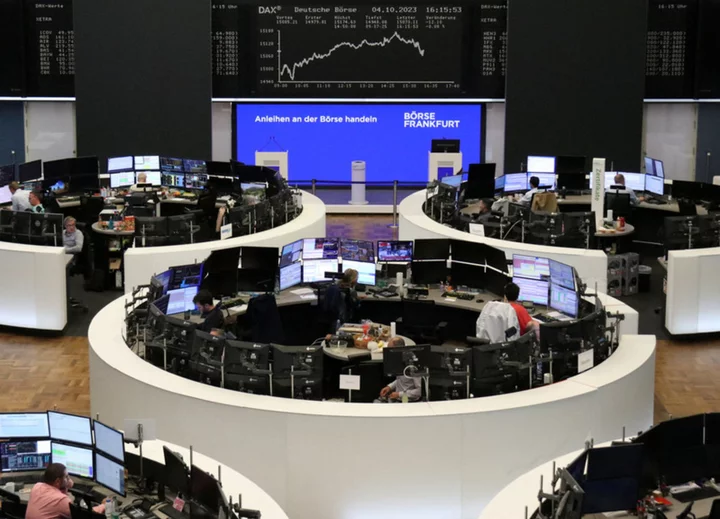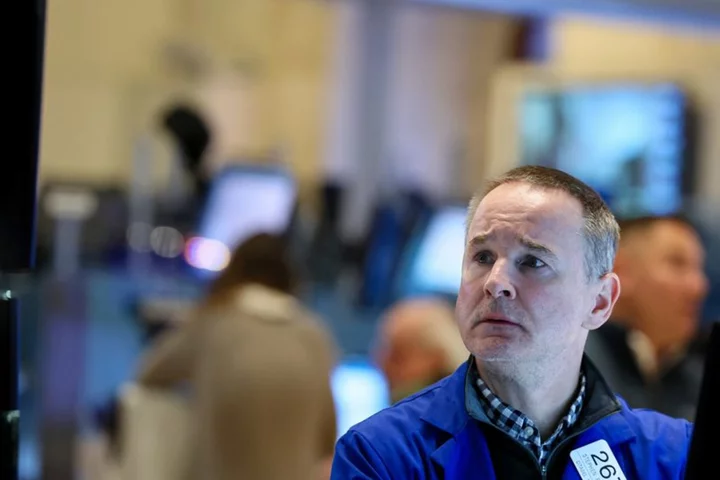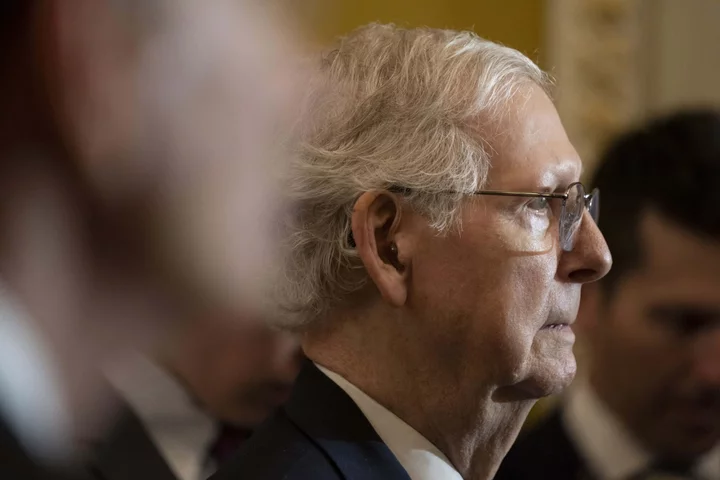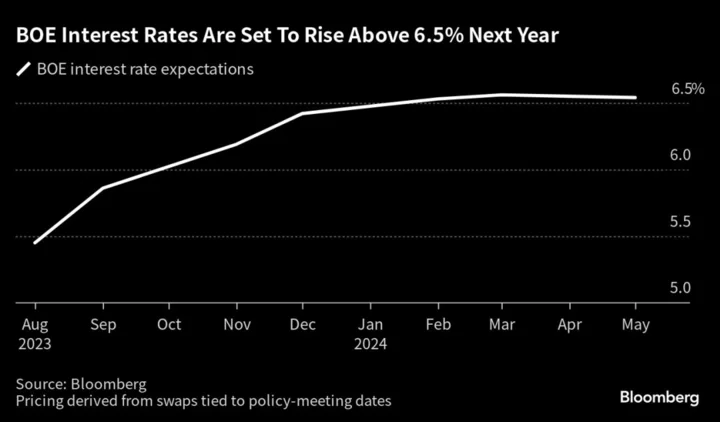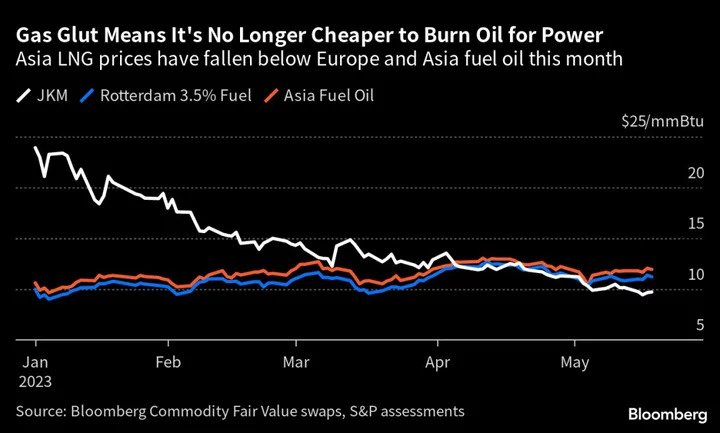The Bloomberg Sustainable Finance Forum is under way, focusing on topics ranging from opportunities in the US market to the evolving regulatory environment.
Speakers include US Securities and Exchange Commissioner Caroline Crenshaw and executives from companies including Goldman Sachs Group Inc., Citigroup Inc. and Bridgewater Associates.
The forum has been organized by groups across Bloomberg. To watch the event on the Bloomberg Terminal, click here.
Lazard’s Singhal Says Markets Aren’t Pricing in Climate Risks (2:45 p.m. NY time)
Capital markets aren’t adequately pricing in climate risks because they’re mainly focused on the short term, according to Nikita Singhal, co-head of sustainable investment and ESG at Lazard Asset Management.
Money managers who bet on rising markets only hold investments for 1.2 years on average, she said, citing a study.
“If that’s your time horizon, how likely is it that you’re going to think about the physical risks of climate change as a real risk to your portfolio?” Singhal said. “Lengthening the time horizons of capital markets is inherently the challenge we are facing.”
Singhal said sustainability and ESG investing is still in its infancy and likens it to the time before the US SEC was created when there weren’t many accounting principles or benchmarks. “We don’t have a model today to understand how sustainability issues that aren’t idiosyncratic actually impact portfolio risk,” she said.
Investors maybe ignoring systemic risks created by large corporations to their holdings and the broader asset-management industry, Singhal said. “Arguably we should be pricing those in, but we haven’t come up with financial models to do that well.”
Singhal said the silver lining from the political criticisms of ESG is that when there is a dispersion of views, it’s usually the best time for investors to seize opportunities.
“Turning this confusion into the greatest alpha-generating opportunity of our time is what’s been amazing to witness,” she said.
New ISSB Guidelines Will Be Transformative, IOSCO’s Moloney says (2:15 p.m. NY time)
Martin Moloney, secretary general at the International Organization of Securities Commissions, said new guidelines that will be issued by the International Sustainability Standards Board will be transformative for the financial markets.
“We are on the verge of laying the biggest stone in financial markets,” he said. “Greenwashing will be much more harmful if it occurs at scale again.”
The IOSCO works with the G20 and the Financial Stability Board on setting the agenda for global regulatory reform.
Goldman’s Mueller Says Investors Move Away From ‘One-Size-Fits-All’ Funds (1:50 p.m. NY time)
Barbara Mueller, a vice president at Goldman Sachs Asset & Wealth Management, said investors are moving away from “one-size-fits-all” ESG funds that rely on corporate scores and rankings, and instead opting for products that are more specific and defined.
While institutional investors understand funds based on environmental, social and governance scores, “investment advisers and their clients are perplexed by them,” she said. There’s confusion about why some companies are included in some funds and not others, she added.
Mueller said the current political backlash against ESG is welcome.
“Debate is good and will lead to more engagement,” she said. “It leads people to think more deeply about how they’re investing.”
The criticisms raise “good questions” about how to incorporate ESG goals with financial goals and how to attain environmental goals without creating inequalities, Mueller said.
SEC’s Crenshaw Sees Potential Overlap in EU-US Climate Rules (1:25 p.m. NY time)
Europe’s forward momentum on climate disclosure rules is highlighting the need for US regulators to think about how publicly traded companies operating globally can navigate multiple and potentially overlapping regulatory regimes, said Caroline Crenshaw, one of three Democratic commissioners at the US Securities and Exchange Commission.
“The closer they are together, the more likely, from the SEC perspective, we are to think about substitute compliance,” Crenshaw said during remarks at the Sustainable Finance Forum.
The SEC teed up a sweeping proposal in March 2022 intended to standardize the types of disclosures public companies make about greenhouse gas reduction goals, and the risks and opportunities presented by a changing climate. The agency has said investor demand for the information, as well as better tools to meaningfully draw comparisons between companies, is driving the rulemaking.
Crenshaw said that despite becoming mired in political fights over climate change, the rule itself isn’t political. “It is the bread and butter of the agency” and about responding to changing demands in the market for information, she said.
The proposal has yet to be finalized, and may not be taken up for a final vote for many months still.



